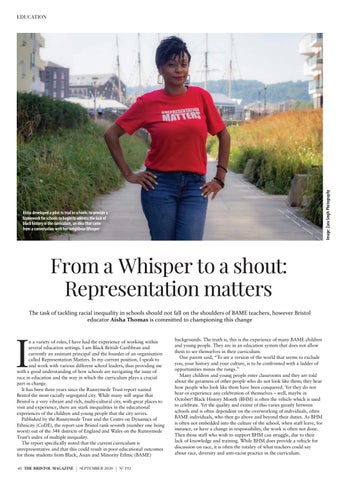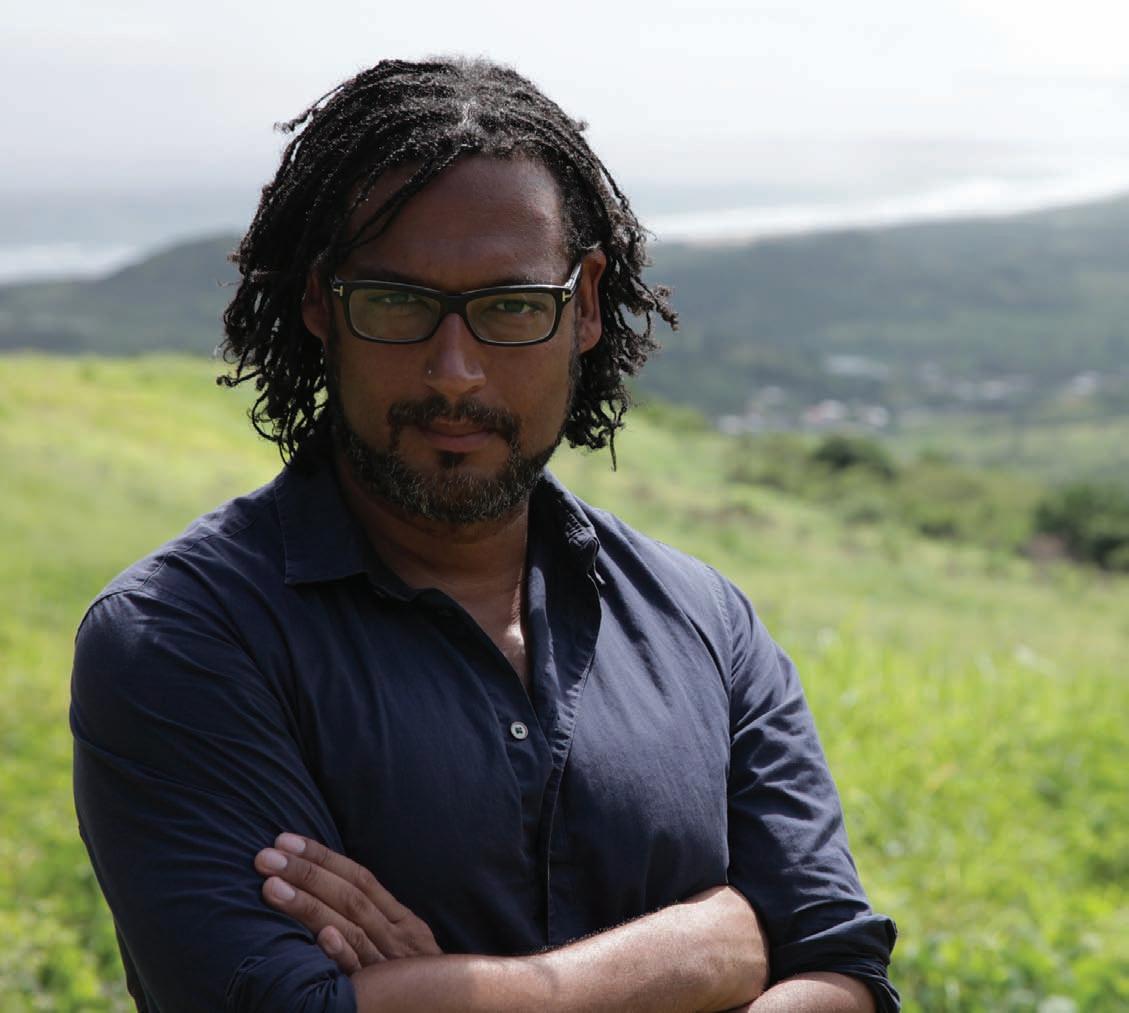Aisha Representation.qxp_Layout 2 28/08/2020 15:22 Page 1
Image: Zara Singh Photography
GARDENING EDUCATION
Aisha developed a pilot to trial in schools, to provide a framework for schools to begin to address the lack of black history in the curriculum, an idea that came from a conversation with her neighbour Whisper
From a Whisper to a shout: Representation matters The task of tackling racial inequality in schools should not fall on the shoulders of BAME teachers, however Bristol educator Aisha Thomas is committed to championing this change
I
n a variety of roles, I have had the experience of working within several education settings. I am Black British Caribbean and currently an assistant principal and the founder of an organisation called Representation Matters. In my current position, I speak to and work with various different school leaders, thus providing me with a good understanding of how schools are navigating the issue of race in education and the way in which the curriculum plays a crucial part in change. It has been three years since the Runnymede Trust report named Bristol the most racially segregated city. While many will argue that Bristol is a very vibrant and rich, multi-cultural city, with great places to visit and experience, there are stark inequalities in the educational experiences of the children and young people that the city serves. Published by the Runnymede Trust and the Centre on Dynamics of Ethnicity (CoDE), the report saw Bristol rank seventh (number one being worst) out of the 348 districts of England and Wales on the Runnymede Trust’s index of multiple inequality. The report specifically noted that the current curriculum is unrepresentative and that this could result in poor educational outcomes for those students from Black, Asian and Minority Ethnic (BAME) 48 THE BRISTOL MAGAZINE
|
SEPTEMBER 2020
|
No 192
backgrounds. The truth is, this is the experience of many BAME children and young people. They are in an education system that does not allow them to see themselves in their curriculum. One parent said, “To see a version of the world that seems to exclude you, your history and your culture, is to be confronted with a ladder of opportunities minus the rungs.” Many children and young people enter classrooms and they are told about the greatness of other people who do not look like them; they hear how people who look like them have been conquered. Yet they do not hear or experience any celebration of themselves – well, maybe in October! Black History Month (BHM) is often the vehicle which is used to celebrate. Yet the quality and extent of this varies greatly between schools and is often dependent on the overworking of individuals, often BAME individuals, who then go above and beyond their duties. As BHM is often not embedded into the culture of the school, when staff leave, for instance, or have a change in responsibility, the work is often not done. Then those staff who wish to support BHM can struggle, due to their lack of knowledge and training. While BHM does provide a vehicle for discussion on race, it is often the totality of what teachers could say about race, diversity and anti-racist practice in the curriculum.

















